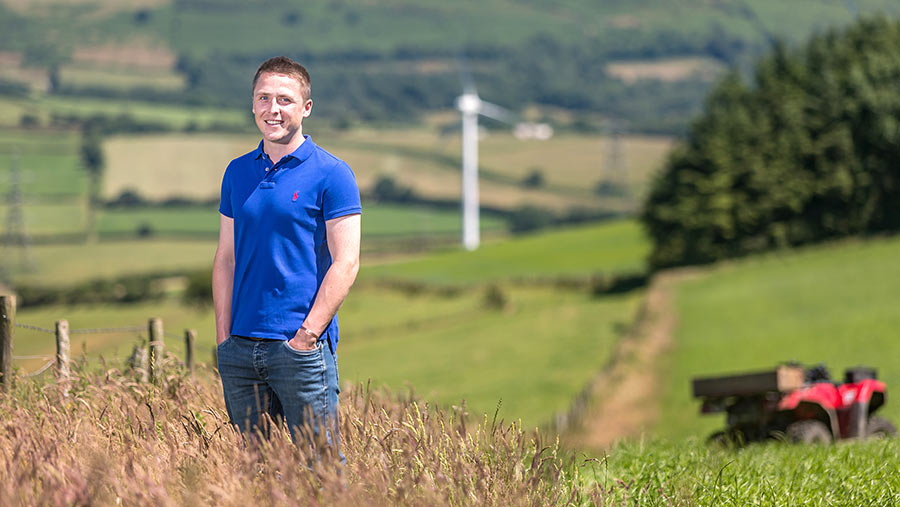Jacob Anthony: Green energy may be the ideal diversification
 © Richard Stanton
© Richard Stanton I am a big believer that as farmers we should try to attend off-farm talks and presentations whenever possible.
That said, I often find myself asking why I have bothered, especially when attending a meeting with a so-called expert who is on a government payroll.
At these meetings you are very likely to hear phrases such as “Farmers are going to have to diversify to survive” or possibly something even more infuriating such as “Farmers need to do more to help fight climate change”.
See also: So you want to… get into farm contracting?
In terms of this last phrase I think we all know that farmers do everything they can to help the environment, but that is a discussion for another day.
To me, the answer to diversifying while at the same time helping to fight climate change is staring everyone in the face – renewable energy. And the inconvenient truth is that many of us already know this.
Many obstacles
The problem farmers have is not a lack of potential renewable options, as nearly every farm could be suitable for wind, solar or hydro-electric. The problem is grid capacity, connection and the rigorous local planning authorities.
The problem farmers have is not a lack of potential renewable options. The problem is grid capacity, connection and the rigorous local planning authorities
With the UK government pumping out renewable energy targets to help keep the electorate onside, this would appear the ideal time for it to turn to farmers as landowners and occupiers to help achieve their goals.
The first obstacle, and possibly the most tricky one to overcome, would be how to upgrade the grid capacity and its connection. Although, in the grand scheme of things, this should be a very minor issue for the UK.
We have the innovators and the technology to put the infrastructure in place, but most crucially we have the elements.
Here in Wales, we have the ability to be virtually renewable energy self-sufficient, while the rest of the UK also has the capacity to greatly reduce its fossil fuel use.
We have already seen some of the benefits of investing in renewables on our farm to help reduce our own energy consumption and costs.
These investments are tiny compared with the potential revenue on offer to the farming industry through new, large-scale commercial green energy projects.
The government and local authorities really need to wake up. We are going to have to find renewable energy from somewhere soon.
At the same time it can provide farmers with an accessible diversification option, helping create investment and work in rural communities as well as making our nation a global leader in clean energy consumption.

